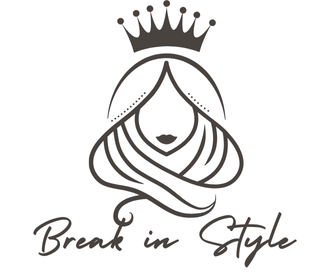Overview of Vegan Leather Alternatives
In recent years, vegan leather alternatives have gained traction as a vital component of ethical fashion. With an increasing demand for environmentally responsible products, these alternatives to traditional leather offer sustainable solutions that cater to consumer conscience.
Traditional leather production is notorious for its harsh environmental impact. It involves extensive animal farming, which contributes significantly to greenhouse gas emissions. The tanning process also uses a substantial amount of non-renewable resources and harmful chemicals, leading to soil and water pollution. As awareness grows, there’s a drive to pivot towards eco-friendly vegan leather.
Have you seen this : Explore trendy blcg style shoes that blend comfort with flair
Vegan leather is crafted from sustainable materials, making it both a style and ethical statement. Common sources include fruit waste, like apple peels or pineapple leaves, and recycled plastics. These materials promise longevity while reducing the carbon footprint. Importantly, they do not involve animal cruelty, aligning well with the values of conscious consumers.
Choosing these sustainable alternatives signifies a commitment to reducing one’s impact on the planet while supporting innovation in fashion. By opting for vegan leather, consumers advocate for kinder, eco-friendly practices, highlighting the importance of making informed purchasing decisions in today’s market.
Also to see : Luxurious plus-size designer tops for every occasion
Popular Eco-Friendly Materials Used in Vegan Leather
The rise of sustainable fabric options is revolutionising the fashion industry, particularly through the use of plant-based materials in vegan leather production. One of the most intriguing innovations is pineapple leather, a pioneering material developed from the by-products of pineapple harvests. This not only minimises waste but also offers a durable and flexible alternative to traditional leather. Another noteworthy example is apple leather, crafted from apple peels. It presents a similarly environmentally-conscious option, demonstrating the versatility of plant derivatives.
Furthermore, the inclusion of recycled materials, such as plastics, plays a significant role in vegan leather manufacturing. By repurposing post-consumer plastics, these fabrics help reduce the environmental impact associated with plastic waste, aligning with sustainable goals. Recycled plastics generate a sturdy foundation for vegan leather that competes with its traditional counterparts in durability.
When comparing the durability and quality of these eco-friendly materials, both plant-based and recycled options offer promising results. Pioneered by advancements in textile technology, these materials ensure longevity and resilience. While some may not achieve the luxurious finish of animal leather, they stand out for their ecological benefits and ethical production. In the quest for sustainability, these materials balance innovation with practicality, supporting a greener future in fashion.
Benefits of Choosing Vegan Leather
Making eco-conscious choices is easier with the advantages of vegan leather. This alternative material is not only free from animal cruelty but also reduces carbon footprints significantly. Traditional leather production is resource-intensive and involves harmful chemicals. In contrast, vegan leather manufacturing often uses sustainable materials like cork or recycled plastics, helping to mitigate pollution and conserve resources.
Ethical and Environmental Considerations
An exciting aspect of vegan leather is its ethical benefits. By choosing this option, you support humane practices that sidestep animal exploitation. Traditional leather industries have long faced criticism for their treatment of animals, but vegan alternatives eliminate this concern entirely.
Additionally, the benefits extend to labor practices. Brands that produce vegan leather often adhere to ethical labor standards. These companies are typically committed to fair trade practices, ensuring that workers are compensated fairly and operate in safe conditions.
Economic Implications of Supporting Sustainable Brands
Supporting brands that prioritize sustainability can also have positive economic implications. By investing in eco-friendly products, consumers encourage a market shift towards environmentally responsible manufacturing practices. While some might consider vegan leather pricier, its durability and ethical production can add long-term value, offering benefits that outweigh initial costs.
Stylish Brands Offering Eco-Friendly Vegan Leather
Exploring the realm of trendy vegan leather brands opens a portal to a world where sustainability meets style. Numerous UK fashion labels have embraced this shift, showcasing their commitment to the environment through remarkable collections.
Highlighting Leading Vegan Leather Brands
Among the sustainable fashion designers, Stella McCartney stands tall, championing the cause with exquisite vegan leather offerings. Nearby, Matt & Nat persistently impress with their diverse range featuring timeless and chic designs. Meanwhile, UK fashion labels like Will’s Vegan Store illustrate that eco-friendly doesn’t mean compromising on aesthetics.
Unique Styles and Collections
These brands offer unique styles tailored for the conscious consumer. Stella McCartney’s collections reflect avant-garde elegance without animal harm. Matt & Nat are known for seemingly limitless textures and hues, redefining what you expect from vegan leather. Such innovation sets these trendy vegan leather brands apart.
Reviews and Customer Feedback
Customer experiences further affirm the merit of these eco-friendly products. Many users applaud the high-end feel and durability of Stella McCartney’s creations, while Matt & Nat garner appreciation for their fashionable functionality. Sustainable fashion designers seem to continually surprise, ensuring their popularity among eco-conscious shoppers remains vibrant.
Practical Tips for Purchasing Vegan Leather
Finding reliable advice for buying vegan leather can seem daunting, but understanding key aspects can make the process seamless. Consider these crucial steps the next time you’re on a hunt for ethical elegance.
Key Features to Look For
When navigating the buying guide for vegan leather, focus on material quality and texture. High-quality vegan leather often mimics the suppleness of genuine leather while being durable and water-resistant. Check for breathability and weight, ensuring comfort in wear and practicality in use.
Identifying Sustainable Brands
For those passionate about sustainable fashion, identifying genuine brands is essential. Seek certifications like PETA-approved vegan labels or Global Organic Textiles Standard (GOTS) to ensure authenticity. Opt for brands transparent about their manufacturing process and ethical commitments. It’s also worthwhile exploring brands using innovative materials like recycled plastics or cork, turning waste into fashion.
Care Instructions
Proper care extends the life of your investments, so familiarize yourself with vegan leather care. Regularly clean with a damp cloth, avoiding harsh chemicals that might damage the surface. Store items away from direct sunlight and extreme temperatures. For deeper cleans, use a gentle fabric cleaner designed for synthetics, ensuring the lasting look and quality of your cherished pieces.
Navigating the world of vegan leather can be rewarding with these tips in hand, leading to a sustainable and stylish wardrobe.
The Environmental Impact of Vegan Leather
Vegan leather offers significant environmental benefits when compared to traditional leather, primarily due to its lower carbon footprint. Unlike conventional leather, which relies on animal agriculture—a major greenhouse gas contributor—vegan leather materials often require less energy-intensive processes. This development aligns with the broader movement towards sustainability in fashion, where reducing environmental impact is paramount.
Studies illustrate the gains of opting for vegan alternatives. For instance, producing a square metre of polyurethane-based vegan leather can result in approximately a third of the carbon emissions of the same amount of animal leather. These case studies showcase the tangible impacts of choosing eco-friendly products, reinforcing the importance of informed consumer decision-making in promoting sustainable practices.
Looking ahead, the fashion industry continues evolving with innovations in eco-friendly leather alternatives. Pioneers are exploring a multitude of bio-based materials such as mushroom and pineapple leather. These alternatives promise further reductions in environmental impact by using renewable resources and cleaner production techniques. As these innovative solutions gain traction, the industry moves closer to sustainable goals, fostering a future where fashion harmoniously integrates with environmental stewardship.











